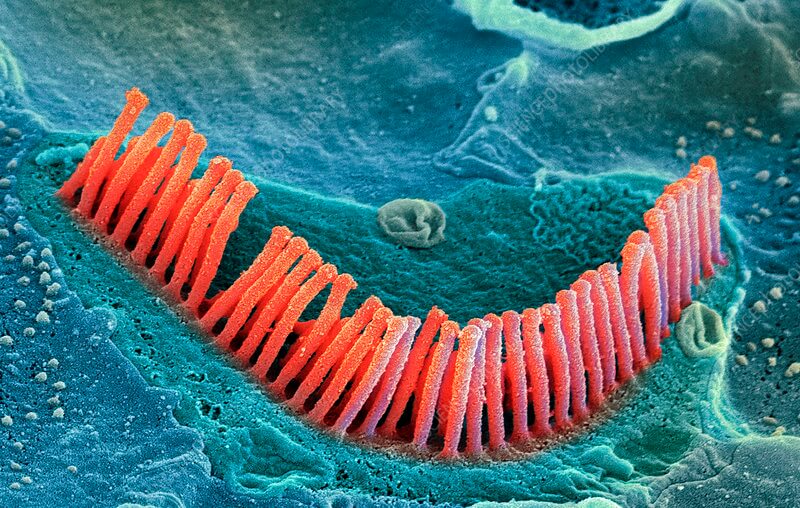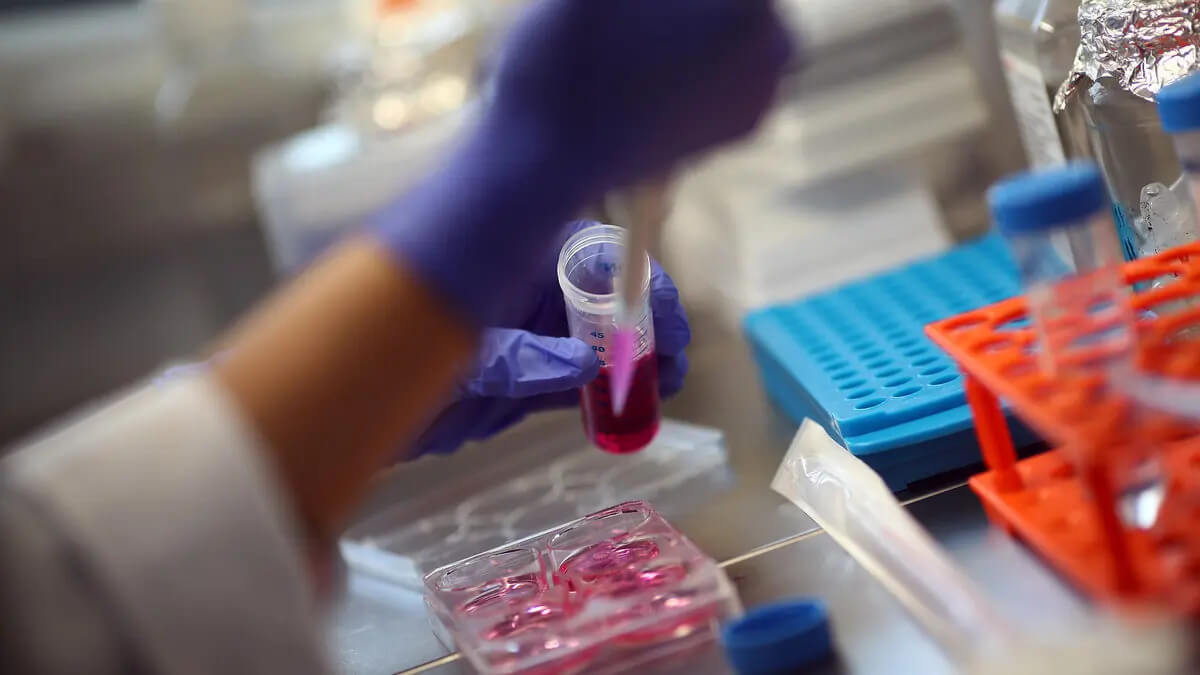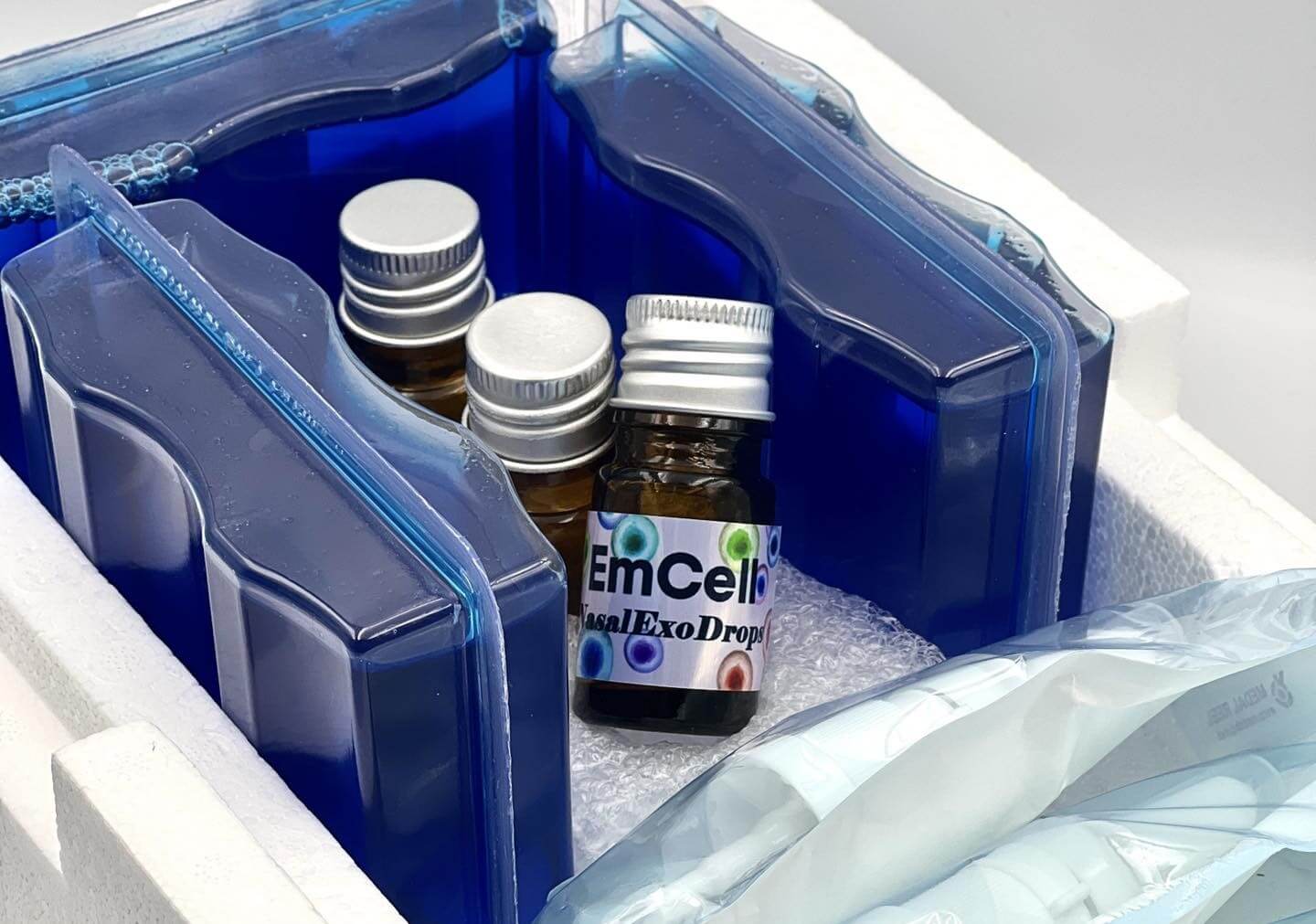Calls for Ukraine
Calls for Europe
Calls for USA

Hearing loss is one of the most common sensory disorders worldwide. More than a billion people experience some form of hearing impairment, and hundreds of millions live with disabling hearing loss. This condition affects communication, employment and mental health. Celebrities such as Millie Bobby Brown, Jodie Foster and Eric Clapton have spoken openly about their hearing challenges, bringing attention to the issue. Yet effective restorative treatments remain limited. Standard care still relies on hearing aids, cochlear implants, noise protection and medication. At the same time, researchers are exploring cutting-edge approaches like gene therapy and cell-based treatments.
Hearing impairment is the most common type of sensory deficit in humans. Most often, it is caused by the irreversible death of cells in the cochlea, the anterior part of the membranous labyrinth. Our ability to hear depends entirely on the state of the auditory receptors – sensory hair cells and associated neurons located in the cochlea.
Mechanical signals (acoustic waves) are converted into electrical signals (action potentials) in the organ of Corti. The movement of the fluid that fills the cochlea activates the hair cells. They release chemicals (neurotransmitters) that stimulate the auditory nerve, which transmits information to the brain for processing.

The inner ear is a very sensitive organ and is therefore at high risk of injury. The most common causes of hearing loss are genetic factors, noise trauma, ototoxic medications, infections, and age-related degeneration (aging). Damaged neurosensory cells are not restored. This results in chronic hearing loss, a devastating condition that is widespread in infancy and adulthood and has widespread consequences for the individual and society as a whole.
Only every fifth patient with hearing impairment is a candidate for hearing aids and cochlear implants. These devices help amplify sound, but do not improve language understanding, which is impaired due to damage to sensorineural cells. The lack of effective treatments has prompted the search for new, more effective approaches. A real breakthrough in this area is the use of fetal stem cells.

EmCellFetal Stem Cell Laboratory and Clinic in Kyiv offers advanced patented fetal stem cell treatments for a variety of diseases and conditions. The clinic’s specialists are engaged in continuous development in the field of cell therapy. One of their latest achievements was a unique stem cell treatment protocol for patients with hearing problems.
Fetal stem cell therapy:
This complex action helps reduce inflammation and tissue fibrosis, slows down, and sometimes completely stops the progressive deterioration of hearing.
Some clinics, including EmCell in Kyiv, offer treatments using fetal stem cells. These cells, derived from early embryonic tissue, are believed to have high regenerative potential. Proponents claim they can:
However, such treatments remain experimental. Their effectiveness has not been conclusively proven, and they raise ethical, legal and safety questions. Risks include uncontrolled cell growth, immune reactions and tumor formation. Any use of fetal stem cells should take place within regulated clinical trials under medical oversight.

The EmCell Clinic has a modern cryogenic storage facility, which stores more than 20 thousand high-quality proliferative drugs made from fetal stem cells. They are produced using a patented programmable “suspension” method, classified by type. This allows the use of different sets of stem cells for personalized treatment of patients.
Each cell preparation is checked twice for microbiological sterility – the first time when processing the biomaterial, and the second time at the stage of final preparation. To control sterility, EmCell specialists use the FDA-approved automatic colorimetric system BacT/ALERT 3D 120 (bioMérieux, France). The safety and effectiveness of fetal stem cell-based products is the laboratory’s top priority.

The number of people with hearing loss is staggering. It is comparable to the global incidence of diabetes and osteoarthritis. However, until now there has been no treatment to restore hearing or prevent hearing loss. The MedTour company, in collaboration with the EmCell clinic, offers a unique solution to this complex problem. Our mission is to realize the potential of cell therapies to treat hearing loss for millions of patients around the world.
To learn more about innovative treatment, fill out the feedback form or call the numbers listed on the website. The MedTour coordinator will provide you with all the necessary information and help organize treatment.
Interest in regenerative treatments for hearing loss is growing rapidly, and early research results are encouraging. Nevertheless, stem cell therapies have not yet become part of standard care. Hearing aids, cochlear implants, rehabilitation and preventive measures remain the foundation of treatment. Anyone considering novel therapies should consult with qualified otologists and audiologists, weigh potential benefits and risks, and only participate in treatments that are part of formal clinical studies. The field is on the cusp of breakthroughs; engaging with it thoughtfully ensures that new discoveries are applied safely and effectively.
Please rate the work of MedTour
